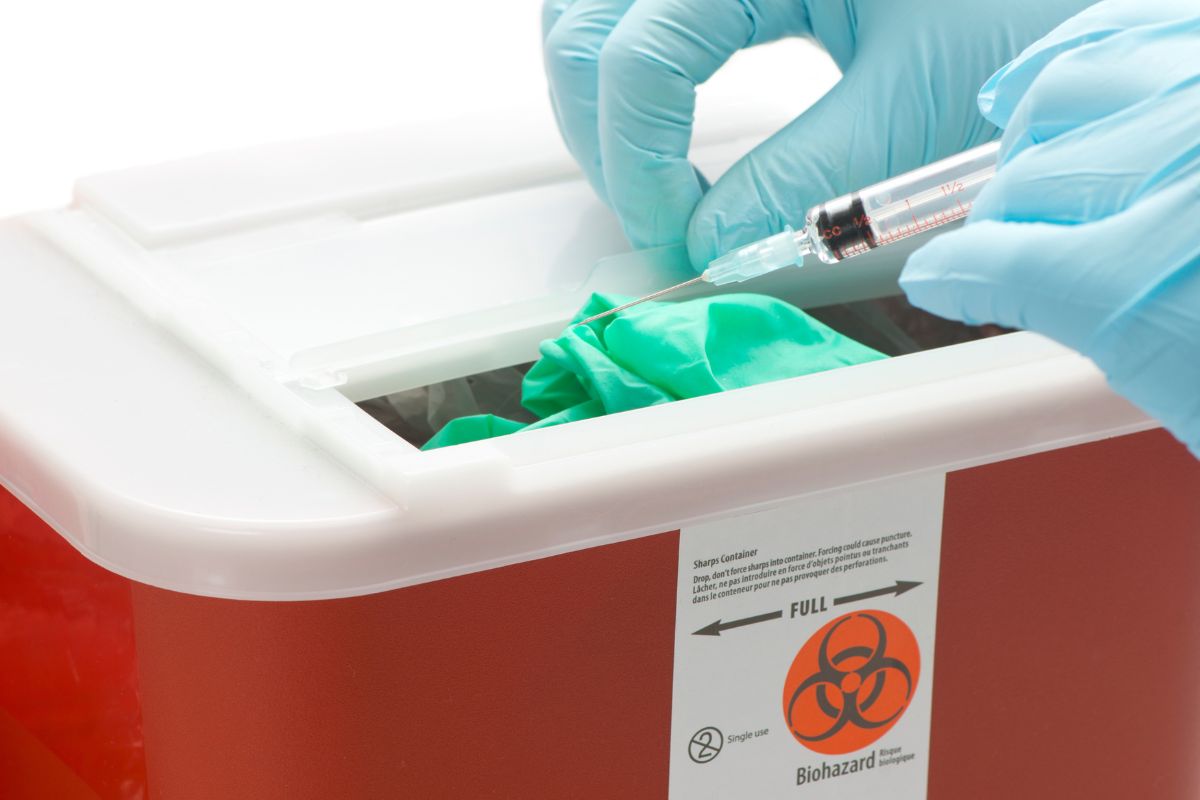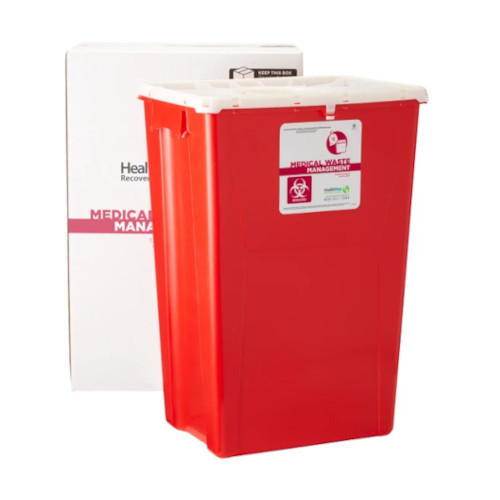Navigating Medical Waste Disposal: Crucial Services for Health Care Facilities
In the detailed landscape of healthcare operations, the monitoring of clinical waste is a crucial aspect that demands careful focus. Medical care centers, whether small facilities or huge hospitals, are left with the duty of handling, dealing with, and dealing with a large selection of clinical waste streams. The intricacies entailed in navigating through the regulative demands, guaranteeing proper waste partition, and implementing risk-free collection and transportation processes are vital. Recognizing the crucial solutions that support clinical waste disposal is not simply a matter of conformity yet likewise a basic element in securing public health and wellness and environmental wellness. The intricacies of this procedure are important for health care facilities, and the competence offered in this world plays a critical duty in keeping the stability of medical care systems.
Regulatory Conformity Assistance
For healthcare facilities, making sure governing conformity support is vital to preserve proper handling and disposal of medical waste. By partnering with governing compliance professionals, healthcare facilities can stay up-to-date on developing policies, minimize risks linked with inappropriate waste disposal, and eventually contribute to a safer and much more lasting atmosphere for all.
Waste Segregation Advice

Medical care centers must offer clear standards and training to team on just how to set apart waste successfully. This consists of dividing basic waste from harmful products such as sharps, contagious waste, pharmaceuticals, and chemical waste.
Collection and Transport Solutions

Appropriate collection and transport services are essential parts of the clinical waste disposal process in healthcare centers. These services ensure that dangerous materials are managed safely and in conformity with guidelines to protect both the environment and public health. Health care facilities depend on specialized waste monitoring business to provide reliable collection and transport solutions tailored to their demands.
Medical waste collection includes setting apart various types of waste at the factor of generation, making use of color-coded containers or bags to distinguish between basic, hazardous, pharmaceutical, and other waste streams. When accumulated, the waste is delivered in devoted automobiles outfitted to take care of hazardous materials securely.
Therapy and Disposal Solutions
In the world of medical waste disposal for health care facilities, after Our site the crucial phase of collection and transport solutions, the focus shifts towards implementing effective therapy and disposal remedies. Treatment solutions commonly include processes such as autoclaving, which uses vapor under pressure to sanitize the waste.
Disposal services incorporate the final action in the clinical waste management procedure. Facilities may decide for landfill disposal, where dealt with waste is very carefully deposited in assigned locations. Medical Waste Disposal Services. Health care centers can pick to utilize waste-to-energy centers, which incinerate waste to produce electricity. Recycling and source recovery are likewise getting traction as lasting disposal alternatives for specific kinds of medical waste materials.
Reliable treatment and disposal services are extremely important in making sure conformity with laws and protecting public health and wellness and the atmosphere. Healthcare facilities need to very carefully review and pick suitable approaches that straighten with their waste monitoring objectives and sustainability campaigns.
Team Training and Education And Learning

To efficiently manage medical garbage disposal in medical care centers, thorough personnel training and education play a vital duty in ensuring adherence to regulatory needs and preserving a safe setting. Proper training equips team with the understanding and skills required to deal with different kinds of clinical waste, segregate them appropriately, and package them safely for disposal. By educating employees on the risks linked with incorrect handling of clinical waste, facilities can reduce the likelihood of crashes, contamination, and regulative violations.

Verdict
Finally, healthcare facilities rely upon necessary clinical waste disposal solutions to make sure governing conformity, proper waste segregation, risk-free collection and transportation, effective treatment and disposal, along with staff training and education. These services play websites a critical duty in keeping the health and security of both healthcare employees and the basic public, highlighting the relevance of proper management of medical waste in medical care setups.
For medical care facilities, making sure regulative compliance support is vital to preserve correct handling and disposal of clinical waste. Waste partition includes categorizing different kinds of medical waste to make sure suitable handling, treatment, and disposal. This includes dividing basic waste from hazardous materials such as sharps, transmittable waste, drugs, and chemical waste.Clinical waste collection involves segregating various types of waste at the point of generation, using color-coded bags or containers to distinguish in between basic, unsafe, pharmaceutical, and various other waste streams.In the realm of clinical waste disposal for health care centers, after the critical phase of collection and transportation solutions, the focus changes towards implementing efficient treatment and disposal options.